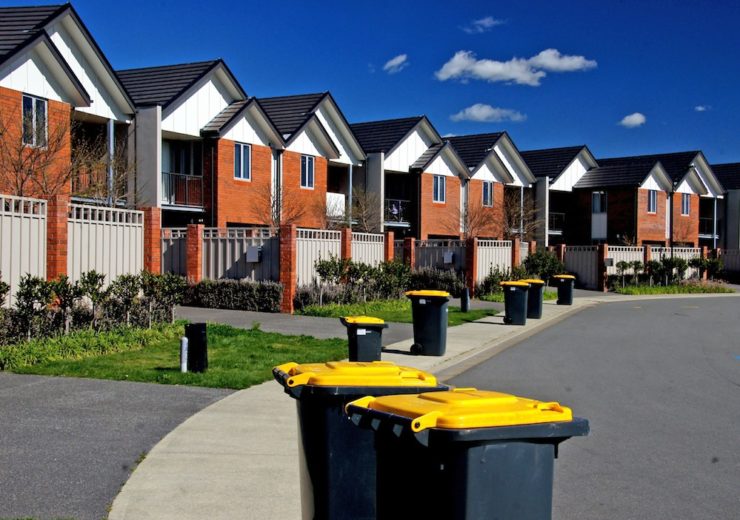The study found the cost of collecting and managing materials such as plastic packaging in England meant local authorities were forced into long waste management contracts

New research found the current system disadvantages local authorities and discourages efforts to invest in green infrastructure (Credit: Flickr/Bernard Spragg)
Reforms to the way plastic packaging is recycled in England are needed to eliminate such waste by 2043 and meet government ambitions, according to a new study.
The research, carried out by the University of Leeds and Brunel University London, found the current system disadvantages local authorities and discourages efforts to invest in green infrastructure.
This has led to an over-dependence on exporting waste to countries with “questionable” recycling policies.
The study was funded by the Plastic and Research Innovation Fund and the Economic and Social Research Council, working collaboratively with the Department for Environment, Food and Rural Affairs (DEFRA), the waste management sector and other stakeholders.
Study leader, Dr Eleni Iacovidou, an environmental management lecturer at Brunel University London, said: “Innovation in the waste and recycling industry is really swift, but our local authorities cannot take advantage under the current system.
“Confronting and breaking the lock-ins to current regulations and infrastructures is key to achieving radical transformations in the plastic packaging system and resource recovery systems more generally.”
Plastic packaging collection costs leave English local authorities ‘tied to long contracts’
The report also found the cost of collecting and managing waste in England meant local authorities were forced to tie themselves into long contracts to make it economically viable.
These long contracts were due to waste companies needing to be confident they’d make a good return on their investment, but this made it difficult for local authorities to implement changes in their infrastructure.
The researchers argue that the burden of cost on local authorities has to be lifted to allow them to incentivise long-term investment in waste programmes.
The UK government intends to address some of these issues through its Resource and Waste Strategy.
Published last year, it includes consistency in waste collection, as well as bringing in extended producer responsibility and deposit return scheme programmes.
Introduced to Parliament in March 2020, the legislation also sets a 2050 target to eliminate avoidable waste of all kinds.

The study into England’s plastic packaging collection system was conducted using an approach termed “Complex Value Optimisation for Resource Recovery” (CVORR).
Developed by the University of Leeds, the methodology analyses waste-producing processes and is designed to make a more objective evaluation of interventions intended to recover resources from waste.
One of the report’s co-authors, University of Leeds’ professor of economics Andrew Brown, said: “The report shows the importance of a deep collaboration between economists, engineers and environmental scientists, also working collaboratively with DEFRA, the waste management sector and other stakeholders.
“In order to take advantage of huge long-term opportunities for value preservation and creation through plastic packaging recycling, change is required in the whole system, guided by the new CVORR framework.”
Dr Iacvidou added: “The complexity of the plastic packaging system means that there is no one perfect solution to the many problems that plague the plastic packaging system, and that a number of targeted, informed ways of addressing these issues is needed.
“The CVORR framework helps us to understand these problems and find solutions in a much clearer, joined-up way.”
UK’s exit from the EU could present a ‘significant challenge’ to meeting 2050 goals, says study
The researchers say the UK’s exit from the European Union (EU) presents a significant challenge to meet the 2050 goal of eliminating avoidable waste of all kinds, as it will create uncertainty in the way waste and resources are governed.
According to the report, European policy on waste has, for the past 40 years, helped the UK make significant progress in improving waste management.
The researchers add that leaving the EU does present an opportunity to implement the required changes to the system, and calls for adjustments to processes and structures in the entire value chain.
As part of this, the report proposes new metrics for the government to use when monitoring their success against the 2050 target.

These metrics would correspond to four domains of value — environmental, economic, social, and technical — to enable a systemic assessment of the plastic packaging system.
Earlier this year, the European Commission adopted its recycling policy.
The Circular Economy Action Plan, one of the central elements of the trade bloc’s Green Deal, focuses on design production for a circular economy, ensuring resources are kept in an ecosystem for as long as possible.
The action plan outlined by the Commission aims to “make sustainable products the norm” in the EU.
As part of this work, it will propose sustainable product legislation, which looks to ensure all items placed on the EU market are designed to last longer, and are easier to reuse, repair and recycle.
The rules would restrict single-use products and ban the destruction of unsold durable goods.
Alongside this, the commission is looking to “empower consumers” by allowing them to make environmentally sustainable choices.
